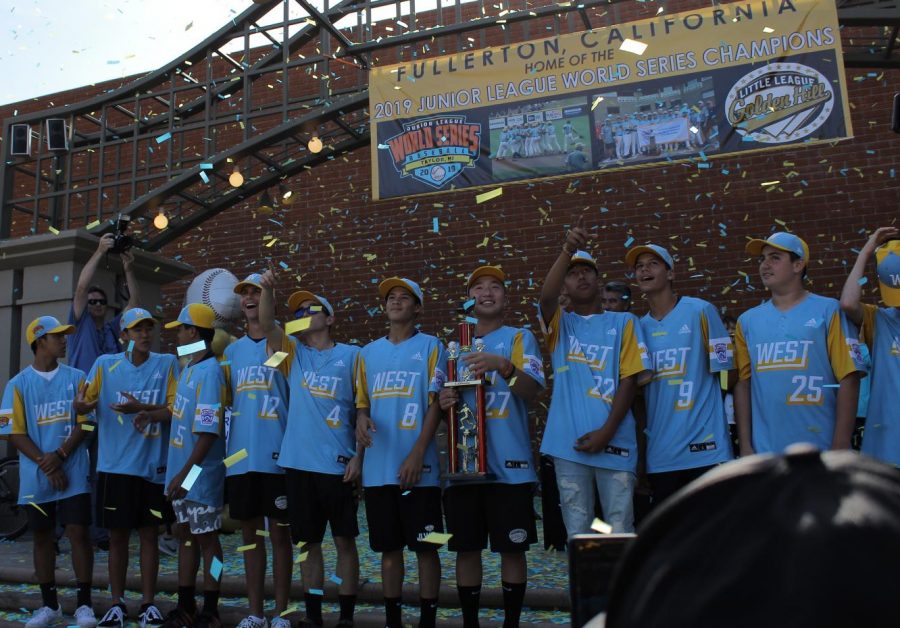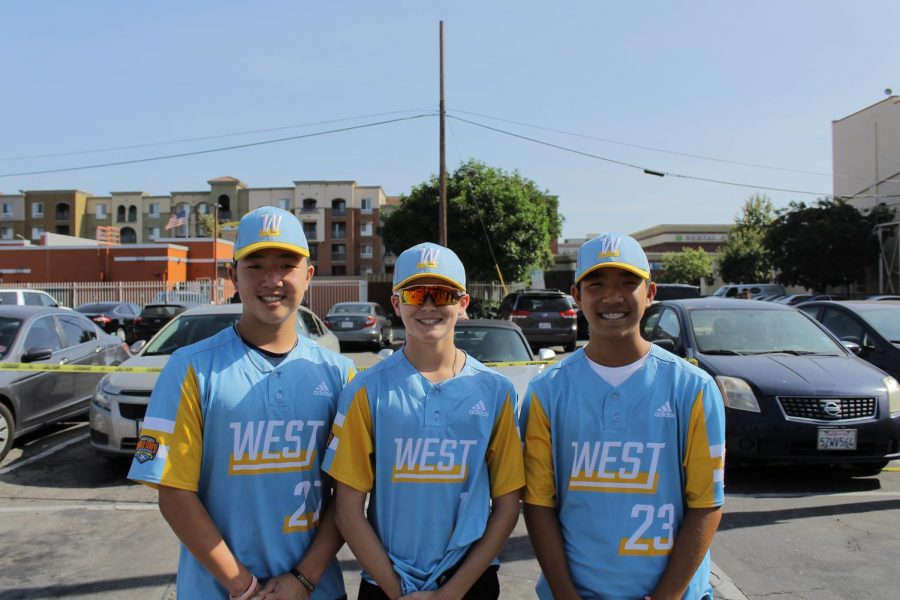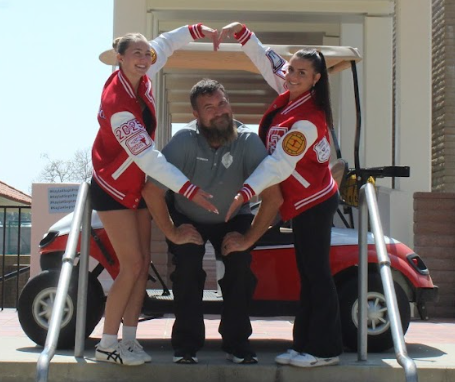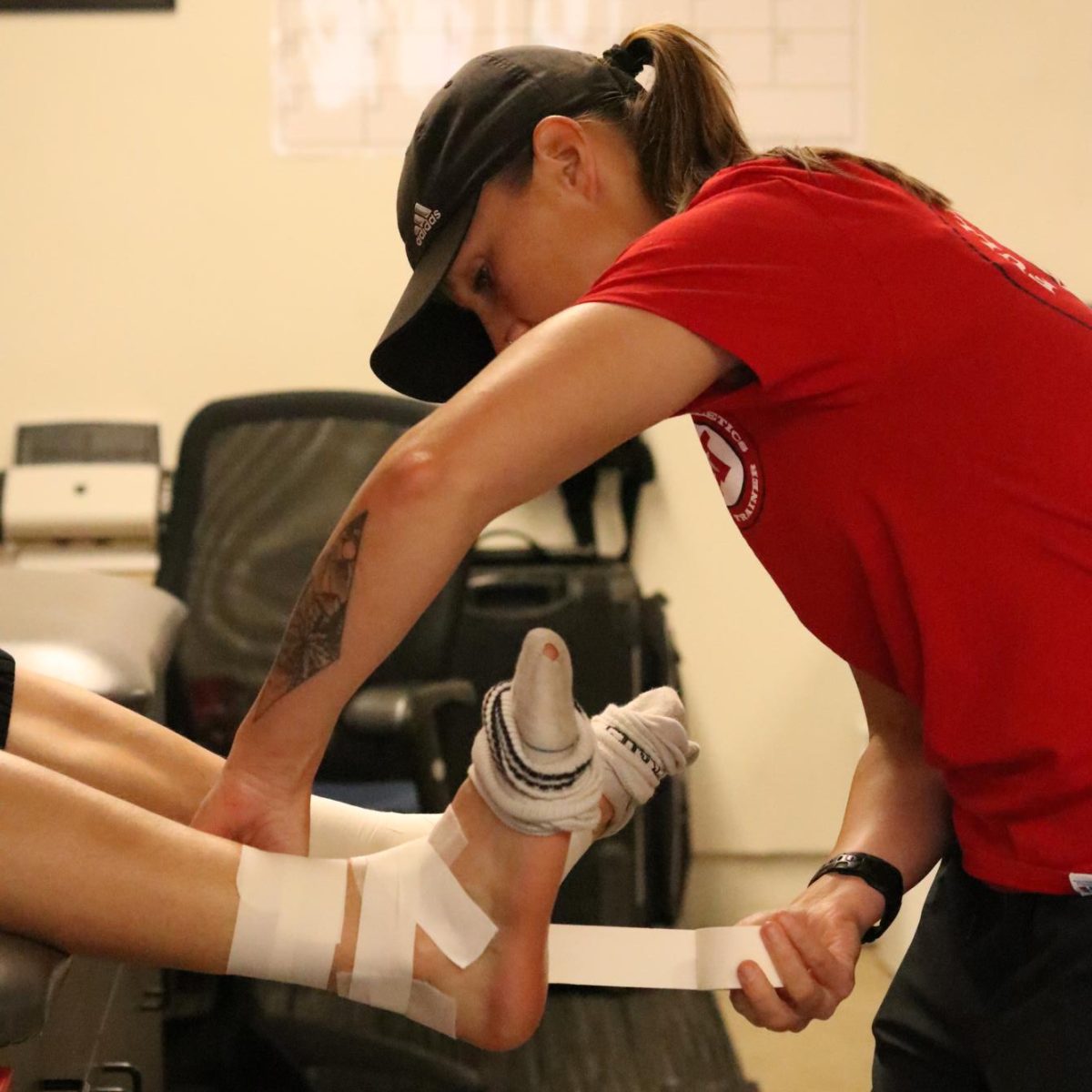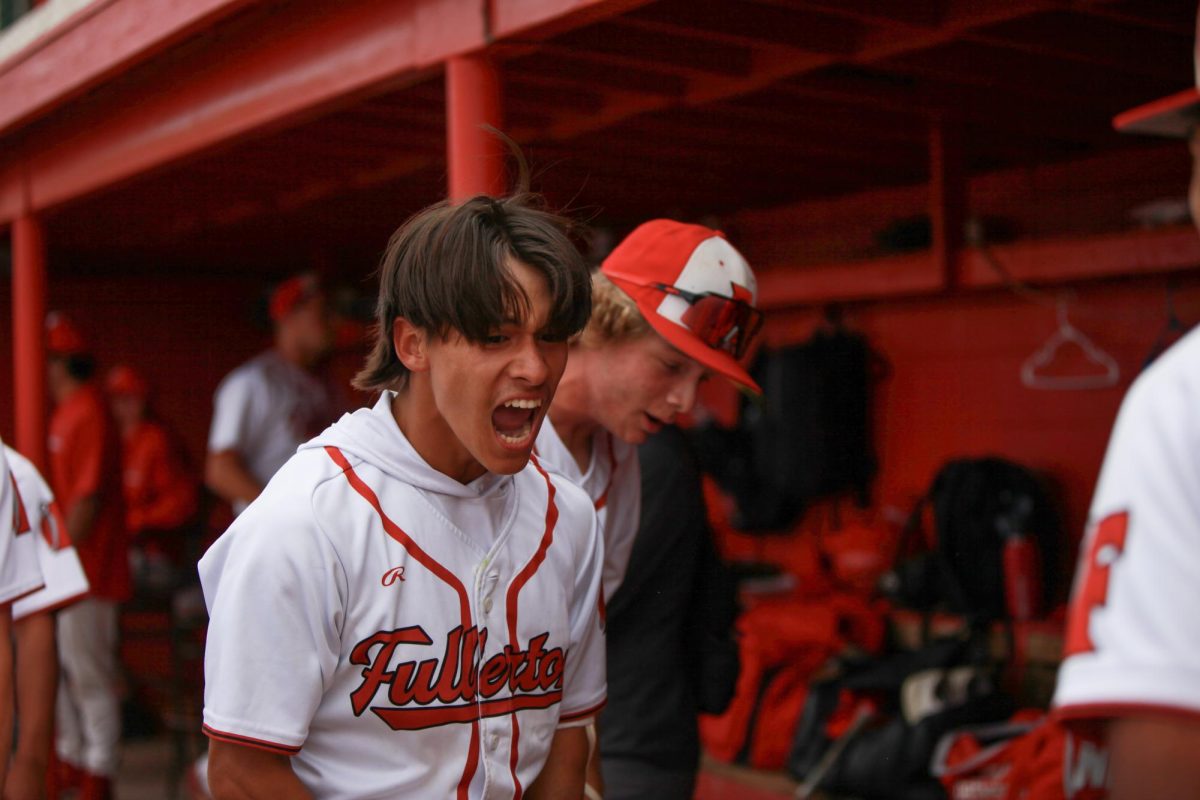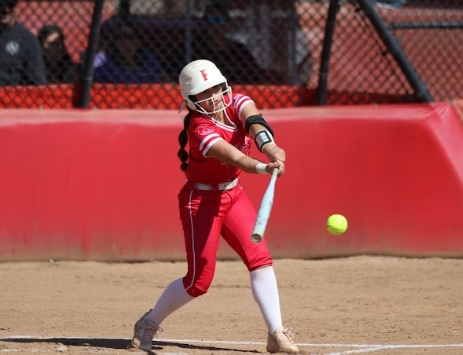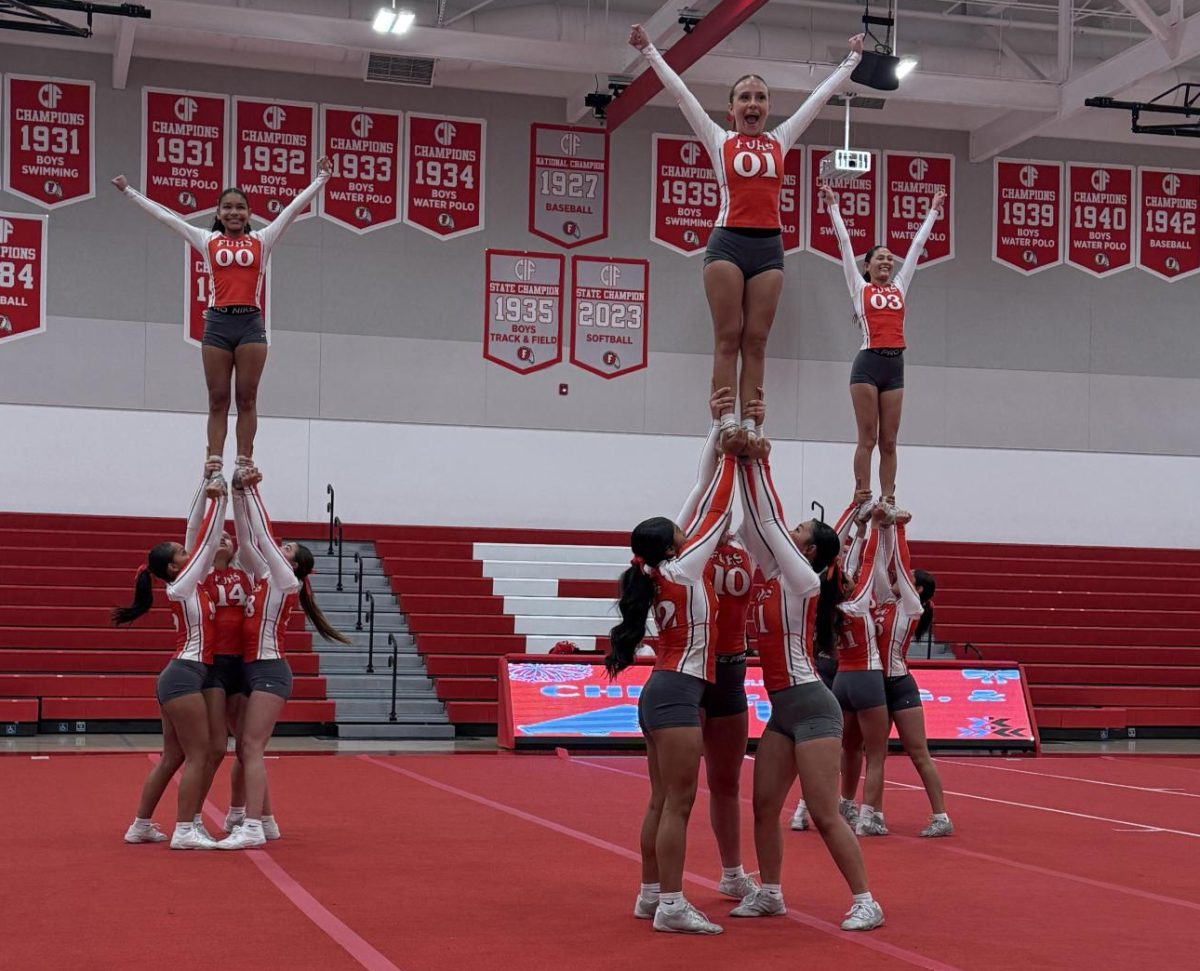Freshmen Eric Jeon, Kyle Kim, and Connor Sunderland were part of the local youth baseball team that won the Little League World Series, Junior Division in August. Both the city of Fullerton and FUHS celebrated their victory on Aug. 22 in Downtown Fullerton.
The Golden Hill Little League team had a perfect record with 20 wins and no losses.
In the final game against Puerto Rico, Kim sealed the win by allowing only one run and striking out three hitters over the course of six and two-thirds innings.
Sunderland said winning was a relief. “I knew we were going to do it once we won our first game. I just had that feeling we were going to win. It was just a relief that it was over.”
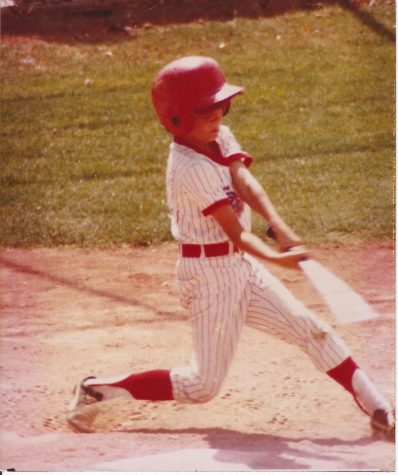
English teacher Mike Alvarez coached at Golden Hill Little League for six years. Alvarez said that Golden Hill has successful teams because many players choose to play for their hometown instead of signing up for travel teams.
“At Golden Hill they still want to stay,” Alvarez said. “There’s something about, ‘I want to play with my friends from my school in my neighborhood.’”
The Little League World Series victory prompted the Tribe Tribune staff to ask faculty members about their youth sports experiences. We asked teachers how sports has shaped who they are today.
Alvarez, for example, competed in football, wrestling and baseball.
“I learned both the value of teamwork and the importance of individual perseverance, especially after failure,” Alvarez said. “Everyone who competes at some point will fail. How we respond to that failure is a determination of our character.”
Sign language teacher Vivian Leos ran cross country all throughout her high school and college years. In high school, she was the cross country team captain.
Cross country is often considered an individual sport, yet Leos said that, as team captain, she was in charge of making sure the runners looked and acted like a team.
“Building [a team] is just about being able to be motivational, coming together and being able to accept everybody no matter what level they’re at,” Leos said. “We always cheered for each other. We also had matching socks—bright, bright socks so that our coach could see us running on the course. Little things like that really helped unify us.”
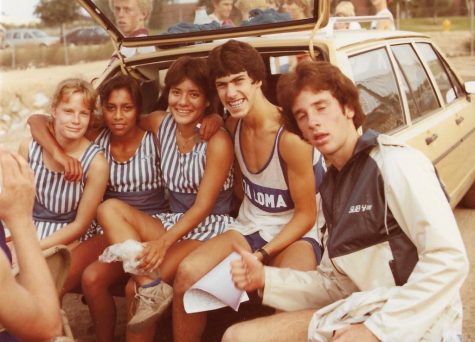
Building a team is not something that only applies to youth sports. History teacher Mike Muhovich said that team building is a skill that can help athletes later in life.
“Sports makes it easier for people to work together later on,” said Muhovich, who played baseball growing up. “I saw that people that had played with others on teams a lot of times worked better in group situations and understood what their goal was.”
Teamwork is a large aspect of school and life in general. Student-athletes will be able to attribute their future success to the life lessons they learned while playing sports.
Employers and college admission officers want to see that students played sports because athletes are typically well-rounded and hard working.
Leos said colleges look for people who can handle extracurriculars.
“They want a well-rounded person,” Leos said. “Employers also look for people who did sports and clubs while also doing well in their classes.”
The future is not only dependent on school and careers, and student-athletes realize this. Youth sports helps students to build all aspects of an athlete’s life.
Assistant principal Tina Wilde has experienced this firsthand. Growing up, her father encouraged her to continue in sports. Wilde said that although he didn’t coach all her games, her father taught her valuable lessons about responsibility and perseverance, and he built a relationship with her through her participation in sports.
“I grew up in a small town, so I traveled three to eight hours for a game,” Wilde said. “I don’t recall my dad ever missing [a game], so even if he wasn’t on the field with me, there was still coaching going on in the house after the fact. It wasn’t berating. It was just us having a conversation and him allowing me to express my excitement or my frustrations and talking it through.”
Wilde said that she wanted to teach her children in the same way that her dad taught her. She coached her sons in baseball and soccer; however, Wilde said that parents can’t expect their children to be exactly like them.
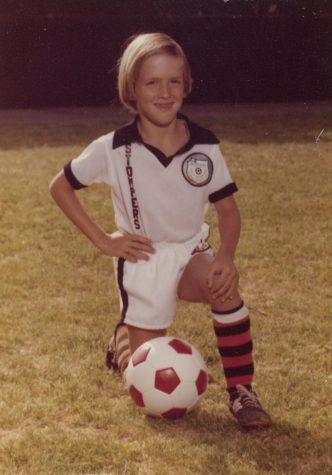
“I think that’s just part of growing up as a parent. You realize it’s your kid’s time to do their own thing; you need to be their cheerleader regardless of what they’re doing,” Wilde said. “Everyone just has to find their own personal interests and hopefully that allows them to be a responsible adult.”
Becoming a responsible adult is not only about getting an education and finding a job; it’s also about building character.
“[Playing] sports is character building,” said science teacher Jeff Oliva who played youth soccer. “When it comes down to being an adult and being part of the world, a lot of what happens relies on your character.”
The most successful adults are those who take the lessons they learn from sports and apply them to the real world.
“The best teams I ever coached were not the teams with the all-star talent,” Oliva said. “The best teams were full of people with the right type of character.”
Reporters Cyrus Burton, Vanessa Chavez, Elyza Flores, Josh Hanson, Lexi Ruesga, Nathan Smith, Michael Ureno, and Isaiah Zarate contributed to this story.

